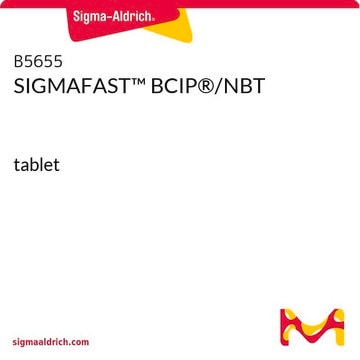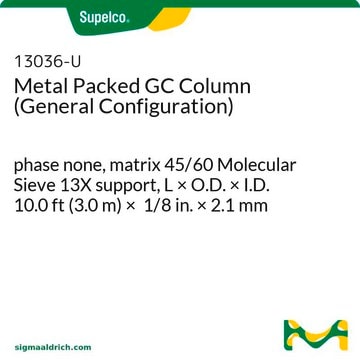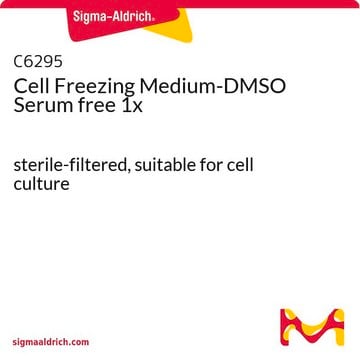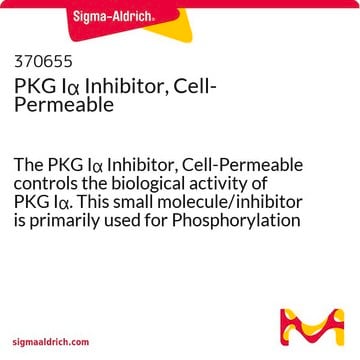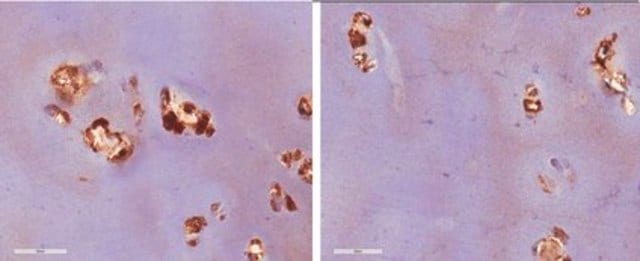MAB19310
Anti-Aggrecan Antibody
CHEMICON®, mouse monoclonal, AF-28
About This Item
Produits recommandés
Nom du produit
Anti-Aggrecan Antibody, MMP Cleaved, NT FFGVG neoepitopes, clone AF-28, clone AF-28, Chemicon®, from mouse
Source biologique
mouse
Niveau de qualité
Forme d'anticorps
purified antibody
Type de produit anticorps
primary antibodies
Clone
AF-28, monoclonal
Espèces réactives
bovine, rat, human, pig, mouse
Ne doit pas réagir avec
guinea pig, horse
Fabricant/nom de marque
Chemicon®
Technique(s)
ELISA: suitable
western blot: suitable
Isotype
IgG1
Numéro d'accès NCBI
Numéro d'accès UniProt
Conditions d'expédition
wet ice
Modification post-traductionnelle de la cible
unmodified
Informations sur le gène
human ... ACAN(176)
Description générale
Spécificité
Immunogène
Application
Cell Structure
ECM Proteins
Inflammation & Autoimmune Mechanisms
ELISA
Optimal working dilutions must be determined by the end user.
Forme physique
Stockage et stabilité
Remarque sur l'analyse
Cartilage, neural tube, and brain tissue
Informations légales
Clause de non-responsabilité
Vous ne trouvez pas le bon produit ?
Essayez notre Outil de sélection de produits.
En option
Code de la classe de stockage
10 - Combustible liquids
Classe de danger pour l'eau (WGK)
WGK 2
Point d'éclair (°F)
Not applicable
Point d'éclair (°C)
Not applicable
Certificats d'analyse (COA)
Recherchez un Certificats d'analyse (COA) en saisissant le numéro de lot du produit. Les numéros de lot figurent sur l'étiquette du produit après les mots "Lot" ou "Batch".
Déjà en possession de ce produit ?
Retrouvez la documentation relative aux produits que vous avez récemment achetés dans la Bibliothèque de documents.
Notre équipe de scientifiques dispose d'une expérience dans tous les secteurs de la recherche, notamment en sciences de la vie, science des matériaux, synthèse chimique, chromatographie, analyse et dans de nombreux autres domaines..
Contacter notre Service technique